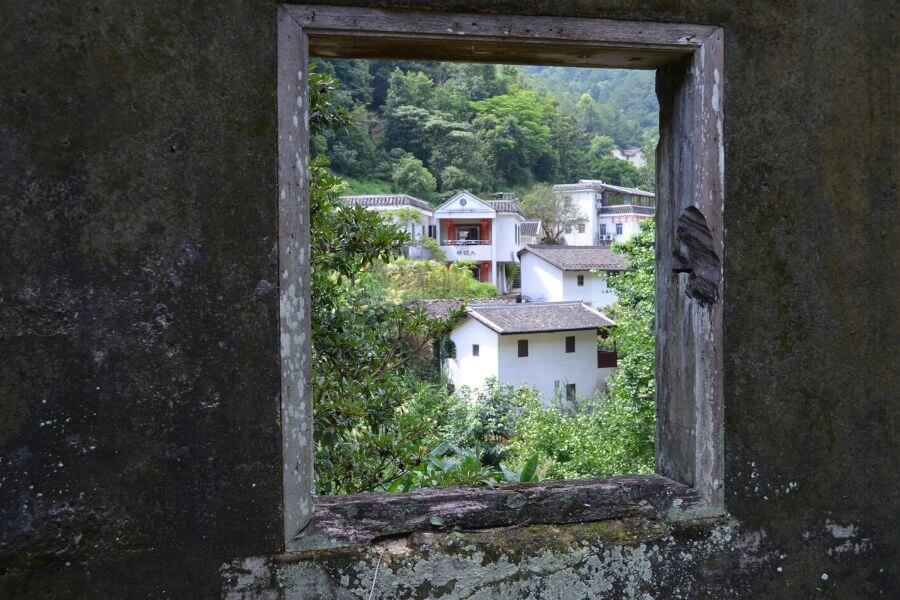
Under Chinese law, "the finality of single-instance arbitration”(一裁终局), or "the principle of finality”, is implemented to ensure the efficiency of arbitration. However, the principle is now being challenged, as China’s arbitration institutions have been introducing the “optional appellate arbitration” mechanism recently, which allows the parties to “appeal” in some cases.
I. Background: the principle of finality under China’s Arbitration Law
In China, unlike the principle of “the second instance being the final instance” adopted in litigation, arbitration adopts the principle of “the finality of arbitral awards in one-instance procedures”(hereinafter “the finality of single-instance arbitration”). This is the principle of finality established by Article 9 of the Arbitration Law of the People’s Republic of China (hereinafter referred to as “China’s Arbitration Law”), that is, after the arbitral award is made, if the parties submit the same dispute for arbitration or for litigation, the arbitration commission or the people’s court shall not accept the case.
Previously, this principle was regarded as the advantage of arbitration over litigation, but now the parties also have concerns: should a case be wrongly adjudicated, it would be difficult to reverse the adjudication.
In practice, it is not rare for an arbitral tribunal to make a mistake in the finding of facts or in the application of laws, which results in the damage of the legitimate interests of the parties. Although the people’s court can set aside or refuse to enforce the wrong arbitral award, the judicial review of arbitration is limited to procedural matters, while the substantive error is difficult to correct.
Meanwhile, the fact that the parties resort to the judicial review to meet their demand of “appealing” against the arbitral award has encumbered the efficiency of arbitration.[1] A case heard by China International Economic and Trade Arbitration Commission (CIETAC) in 1996 was a typical example:[2]
A. In 1996, CIETAC made an arbitral award;
B. The losing party applied to the court for setting aside the arbitral award;
C. The court decided to suspend the setting-aside procedure and notified CIETAC to conduct a re-arbitration;
D. In 1998, CIETAC made a new arbitral award;
E. The prevailing party applied to the court for enforcement of the award;
F. The losing party requested the court not to enforce the award, but the court dismissed the request;[3]
G. In 1999, the losing party applied to the court again to set aside the arbitral award, but the court dismissed the request;[4]
H. In 2000, the losing party filed an application for enforcement appeal with the Supreme People’s Court (SPC);
I. In 2002, the SPC replied that the arbitral award shall not be enforced.[5]
In this case, the efficiency advantage of arbitration has all gone. On the one hand, it is attributed to the fact that China’s Arbitration Law fails to clarify the relationship between the setting-aside procedure and the non-enforcement procedure of an arbitral award, and on the other hand, it is because there is no reasonable trial time limit when it comes to the court’s judicial review procedure of arbitration.
In other words, if we can correct the substantive and procedural errors within the arbitration process, we can meet the needs of the parties with high efficiency.
From a comparative view, many countries and regions (such as the UK, the Netherlands, and Hong Kong S.A.R.) have affirmed the limited appeal of arbitral awards.[6] In addition, although the appeal to the court on international arbitral awards is not allowed in Singapore, France, and India, it is a different story when it comes to domestic arbitral awards. Thus, it can be seen that the finality of single-instance arbitration is not absolute in every country. In practice, more and more arbitration institutions are trying to introduce the Optional Appellate Arbitration Rules.
II. Turning point: the optional appellate arbitration introduced in China’s arbitration institutions
1. Practice of Shenzhen Court of International Arbitration (SCIA)
SCIA is the first arbitration institution in China to explore the internal appeal of arbitration (also known as the optional appellate arbitration mechanism), [7]which circumvents “the finality of single-instance arbitration” in China’s Arbitration Law by applying the Hong Kong Arbitration Ordinance, Article 73 of which allows the parties to expressly agree on the appeal against an arbitral award in terms of substantive matters.
Its exploration can be divided into two stages.
In the first stage, the scope of application is limited. In Dec. 2016, SCIA issued the “SCIA Guidelines for the Administration of Arbitration under the UNCITRAL Arbitration Rules” (关于适用《联合国国际贸易法委员会仲裁规则》的程序指引), allowing the parties to let SCIA arbitrate pursuant to the UNCITRAL Arbitration Rules, Article 3 of which stipulates that if the parties have not agreed on the seat of arbitration, the seat shall be Hong Kong by default.
In the second stage, the scope of application is extended to all commercial arbitration. The SCIA Arbitration Rules (深圳国际仲裁院仲裁规则) was revised by SCIA Council and came into force on 21st Feb. 2019, which officially introduced the optional appellate arbitration mechanism (see Article 68) for the first time in China. In order to prevent the parties from maliciously applying for appellate arbitration or abusing the right of appellate arbitration, SCIA Council has formulated the “SCIA Guidelines for Optional Appellate Arbitration Procedures”(深圳国际仲裁院选择性复裁程序指引), which specifies in detail the appellate arbitration procedure. For example, SCIA’s appellate arbitration procedure is only applicable to disputes with an amount in controversy of more than CNY 3 million, and the appellate arbitration is not available for cases of an expedited procedure.
2. Practice of Beijing Arbitration Commission (BAC)
In Oct. 2019, the “Beijing Arbitration Commission/Beijing International Arbitration Center Rules for International Investment Arbitration” (北京仲裁委员会/北京国际仲裁中心国际投资仲裁规则) came into force, which included an appeal proceeding in the international investment arbitration and established corresponding procedures for this purpose (see Article 46 and Appendix 5). According to BAC, the appeal proceeding is designed to address the demand of a relief mechanism for substantive errors, a mechanism absent in the existing international investment arbitration rules.
III. Evaluation: seeking a balance between efficiency and fairness
The appellate arbitration of SCIA is mainly for commercial arbitration, while that of BAC is only for investment arbitration between investors and sovereign states. Both of them are based on party autonomy, in the sense that the appellate arbitration proceeding only applies upon the agreement of the parties. Specifically, its characteristics include: firstly, the appellate arbitration procedure is not compulsory, but adopts the opt-in mode, which will only be initiated with the consent of all parties. Secondly, the cause of appellate arbitration can only be the misapplication or misinterpretation of laws, the obvious and serious fact-finding error, or the lack of jurisdiction. Thirdly, the appellate arbitration is embodied in the procedure as “the second instance being the final instance”, which is different from the “the finality of single-instance arbitration” stipulated in China’s Arbitration Law.
And because of the third characteristic, the arbitral award made by China’s arbitration institutions through the appellate arbitration is unlikely to be enforced by the court in mainland China. Therefore, SCIA suggests that “the place of arbitration shall be a jurisdiction where the appellate arbitration is not prohibited”, so as to confirm the validity of the arbitral award according to the law of the seat of arbitration. For this purpose, SCIA has specially stipulated the Model Arbitration Clause applicable to the appellate arbitration procedure. [8]
It is worth mentioning that the appellate arbitration mechanism is an error correction procedure set up within the arbitration institution, which is different from the external supervision. Therefore, after the final award is made through the appellate arbitration procedure, if errors still exist, the parties can still apply to the court for setting-aside or non-enforcement of the arbitral award.
In recent years, the appellate arbitration mechanism has not only been incorporated in the investment agreements concluded between the EU and some countries, but also been discussed in the Investor-State Dispute Settlement Reform that UNCITRAL has been deliberating as well as in the revision of ICSID arbitration rules. China’s arbitration institutions’ innovation in the optional appellate arbitration conforms to the international trend, and will also provide inspiration for the revision of China’s Arbitration Law.
[1] 参见刘晓红主编:《仲裁“一裁终局”制度之困境及本位回归》,法律出版社2016年版,第33页。
[2] (96)贸仲裁字第0271号仲裁裁决书。
[3] (1998)深中法经二初字第97号裁定书。
[4] (1999)二中经仲字第102号裁定书。
[5] 《最高人民法院关于深圳市广夏文化实业总公司、宁夏伊斯兰国际信托投资公司、深圳兴庆电子公司与密苏尔有限公司仲裁裁决不予执行案的复函》(2000)执监字第96—2号。
[6] 例如,1996年《英国仲裁法》第58条允许当事人约定仲裁内部上诉或复审程序,同时第69条允许当事人就仲裁裁决中的法律错误向法院上诉;1986年《荷兰民事诉讼法典》第1050条允许当事人约定就仲裁裁决向另一仲裁庭提出上诉;《香港仲裁条例》第73条允许当事人明示选用仲裁实体上诉程序。
[7] 沈四宝、刘晓春、樊其娟:“中国仲裁:一裁终局的重新评估与复裁机制的创新实践”,https://www.sohu.com/a/354565592_159412,最后访问日期:2020年5月9日。
[8] http://www.sccietac.org/index.php/home/index/rule/id/793.html,最后访问日期:2020年5月24日。
Photo by Kirill Sharkovski (https://unsplash.com/@sharkovski) on Unsplash
Contributors: Jian Zhang 张建








